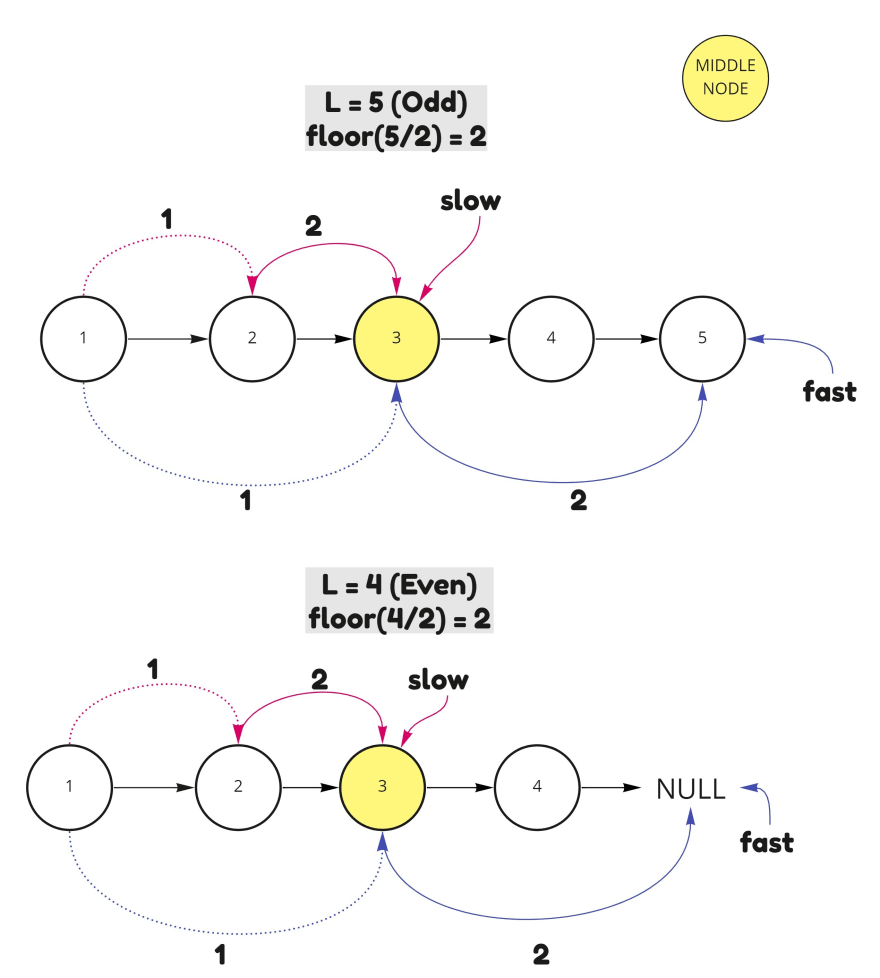38
LinkedList Questions: [Optimal] Find Middle Element
In this series of posts, I will discuss coding questions on the LinkedList Data structure.
The posts in this series will be organized in the following way,
- Question Link ❓
- Possible Explanation 📝
- Documented C++ Code 🧹
- Time and Space Complexity Analysis ⌛🌌
Given a non-empty, singly linked list with head node head, return a middle node of the linked list.
If there are two middle nodes, return the second middle node.
💡 Give yourself at least 15-20 mins to figure out the solution :)
I hope you have read the previous article because I want to relate the ideas of both approaches rather than making you feel, an optimal solution is a completely new thing!
👀 Observation: If you recall from the last post, we can reach the middle node after
floor(L/2)iterations.
Remember the above point, I'll come to this point after we see the algorithm.
Here's the algorithm.
- Initialize two pointers,
fastandslowboth pointing toheadinitially. -
Move
fastdouble the speed thanslowuntillfastbecomes NULL or it has reached the last node.
//pseudo code while fast!=NULL and fast->next != NULL fast = fast->next->next slow = slow->next return
slow.
First of all, we can either have an odd length linkedlist or an even length LinkedList.
- Case 1: Odd length
-
fastwill point to the last node afterfloor(L/2)iterations.
-
- Case 2: Even Length
-
fastwill become NULL after traversing the entire list infloor(L/2)iterations.
-
So no matter what the type of LinkedList, one of the loop termination conditions will hit after floor(L/2) iterations, and by that time slow would be pointing to the required middle node.

//Definition for singly-linked list.
struct ListNode
{
int val;
ListNode *next;
ListNode() : val(0), next(nullptr) {}
ListNode(int x) : val(x), next(nullptr) {}
ListNode(int x, ListNode *next) : val(x), next(next) {}
};ListNode *middleNode(ListNode *head)
{
ListNode *fast;
ListNode *slow;
fast = slow = head;
//make fast reach the end of the list by moving it double time the slow
while (fast != nullptr && fast->next != nullptr)
{
fast = fast->next->next;
slow = slow->next;
}
//* now slow will point to the required node
return slow;
}N: Length of Linked List.
We are doing O(N/2) iterations which asymptotically is the same as O(N)
We didn't use any extra space.
38

